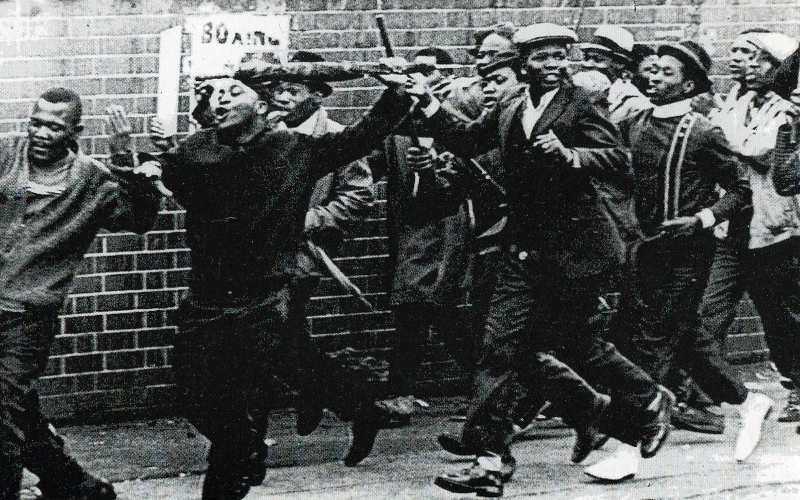Call for Conference Papers Strikes and Social Conflicts in Hostile Environments, September 5-6, 2025. Extended deadline for Submission of Abstracts: March 15, 2025.
While workers and other subordinate groups are always operating under conditions that limit their range of action—that is, circumscribing the kinds of protest demands or action repertoires that are considered normative or acceptable—there are historical periods and geographical spaces in which the environment is especially hostile to collective action from below.
Our premise is that we have entered one of these especially hostile periods on a global scale. As such, there is an urgent need to examine and draw lessons from instances in which subordinated groups navigated through, organized in, protested against, and at times, successfully transformed the “hostile environments” in which they were embedded.
Important lessons can be drawn from examining both historical and contemporary instances. Historically, the first half of the twentieth century can be seen as a period of widening/deepening “hostility” on a global scale, with the spread of fascist movements and labor repressive colonial regimes. Likewise, the current global resurgence of fascist and far right regimes and movements in new forms can be understood as marking another period of widening/deepening hostility.
Hostile environments are not limited to these two time periods. Indeed, spatial-temporal unevenness has been a central feature of historical capitalism. For example, in the decades after the Second World War, the apartheid regime in South Africa and military dictatorships in Latin America and East Asia existed at the same time that the right of workers to strike and form independent trade unions were at their height in many core countries. Equally important, workers in the same location (e.g., within the same country, city, workplace) are regularly divided between those who are ruled through consent and those who feel the brunt of the hostile environment—with distinctions drawn along lines of gender, migration/citizenship, race/ethnicity, urban/rural, etc
Finally, and importantly, even in the darkest periods in world history, there have been local pockets of hope in which successful mobilizations around (and advances of) labor rights and social justice have prevailed. Here, as examples, we might think of the settlements established by enslaved people who had escaped from bondage (marronage); or Rojava, the autonomous polyethnic socialist regime established in northeast Syria in the midst of the Syrian Civil War; or strikes and strike waves under military dictatorships or even those under hostile neoliberal environments.
Call for Abstracts
We welcome the submission of abstracts for papers related to the broad theme of strikes and social conflicts. In line with this year’s conference theme, we especially welcome abstracts for papers focused on:
- case studies of strikes and social conflicts under colonial, fascist, neofascist, far-right, and other hostile regimes;
- workers organizing to break down internal class divides (within countries or between countries) and their lessons for working class solidarity and labor internationalism today;
- the experiences of “rays of hope” that shined through (even for a short time) in deeply hostile environments.
We also encourage the submission of abstracts that focus on the following specific aspects of the overall conference theme:
- the contemporary university as hostile environment;
- strikes and social conflicts in wars and hostile geopolitical environments;
- the role of ecology and climate crisis in contemporary hostile environments.
We welcome papers that are contemporary or historical as well as papers that are single case, comparative or global in perspective. We encourage all paper presenters to grapple with and make explicit the lessons of their analysis for our present-day hostile environment(s).
Procedures for Abstract Submission
Paper abstracts of 250-500 words should be submitted via this google form. The deadline for submissions is March 15, 2025. Decisions will be announced by April 1, 2025.
There are no conference fees for attendees. Buffet meals will be provided at the conference itself; however, participants should plan to cover their own travel/accommodation expenses. Information on hotel options and other conference updates will be posted on the conference webpage. Those who need assistance with obtaining visas or have other barriers to participating in person should include this information on the abstract submission Google form. We will try to find solutions.
Papers presented at the conference will be considered for publication in the IASSC’s journal, Workers of the World.
Conference details
Co-Organized by:
- Arrighi Center for Global Studies, Johns Hopkins University
- International Association of Strikes and Social Conflicts (IASSC)
Conference Venue: The Johns Hopkins University Bloomberg Center, 555 Pennsylvania Avenue NW, Washington, DC (USA)
Conference Theme: Strikes and Social Conflicts in Hostile Environments
Conference Organizing Committee (Contact email for conference queries:
- Committee Chair: Beverly J. Silver (Johns Hopkins University);
- Arrighi Center Committee Members: Zophia Edwards (Johns Hopkins), Ricardo Jacobs (UC Santa Barbara), Mateus Alves de Mendonca (Johns Hopkins), Corey Payne (University of Richmond), Christy Thornton (New York University);
- IASSC Committee Members: Ralph Darlington (University of Salford) and Alice Pate (Kennesaw State University).

